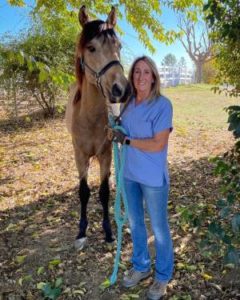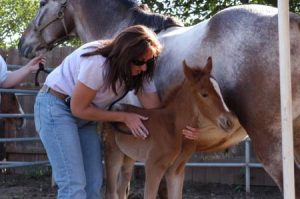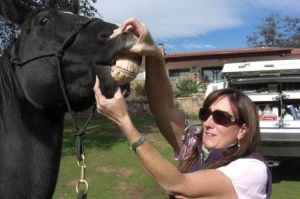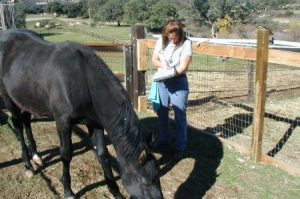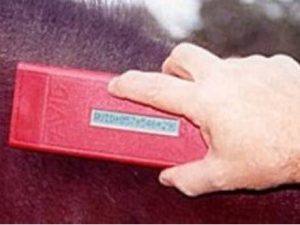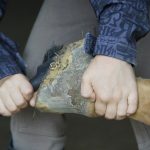
HORSES AND THE LAW YEAR IN …
A lot happened during 2010, some things good, some not so good. Looking back through the year’s blogs I came up with some highlights. What are your choices for the most interesting—or important—equine law stories of 2010?
January: A federal district court in the District of Columbia dismissed a lawsuit filed by activist Christine A. Jubic, who was trying to stop one of the controversial Bureau of Land Management “gathers of wild mustangs.” Her claim for relief was based on her long-standing “love affair” with the area of Nevada where the roundup was to take place and the fact that she planned to revisit the area, and presumably the wild horses, “before she dies.” The court said that her claim was too generalized and that she lacked standing to file the lawsuit.
February: The United States Department of Agriculture abandoned its controversial National Animal Identification System. In its place is planned a watered down version that ultimately will shift development and management of a nationwide animal identification plan into the hands of the individual states, Indian tribes, and producers. It still is not clear where horses will fit into the new identification and tracking scheme, if at all.
March: Judge George J. Pulver Jr. found prominent New York Thoroughbred owner and breeder Ernest Paragallo guilty on 33 separate counts of animal neglect. The charges arose from the April 2009 seizure of 177 horses, many severely malnourished, from Paragallo’s Center Brook Farm near Albany.
April: In a decision sure to infuriate animal welfare organizations and anyone else concerned about animal abuse, the Supreme Court of the United States ruled that a federal law used to convict a person of selling dog fighting videos was unconstitutional. By an 8-1 vote, the Court in United States v. Stevens held that 18 U.S.C. § 48, Depiction of Animal Cruelty, was substantially overbroad and created a criminal prohibition of “alarming breadth.” The overturned law was written to specifically address so-called “crush videos,” and late in the year Congress passed a new law to criminalize the same behavior without the First Amendment problems.
May: A court in Vermont acknowledged that “categorizing a beloved pet as mere property fails to recognize that such an animal’s ‘worth is not primarily financial; . . . its value derives from the animal’s relationship with its human companions.’ ” Despite that special relationship, which presumably applies to horses and their owners as well, the Court said that case law in Vermont and other states is clear: Non-economic damages are not available in property actions.
June: Virginia Gov. Robert F. McDonnell signed legislation granting immunity to veterinarians from any civil or criminal liability or any administrative penalty for good faith reporting of suspected animal abuse. This is how the law works in many states. Kentucky remains a state in which a veterinarian cannot legally report suspected animal abuse without violating veterinarian-client confidentiality laws.
July: Federal Judge Larry Hicks issued and then lifted a temporary restraining order halting a mustang roundup. In a minor victory for wild horse advocates, Judge Hicks ruled that the Bureau of Land Management’s closure of 27,000 acres of public land, which effectively barred the public and press from monitoring the mustang roundup, was illegal on First Amendment grounds.
August: A cloned steer named “Doc” was named Grand Champion of the 4-H Market Beef Show at the Iowa State Fair. The result raised questions about whether breed registries and competitions should be open to cloned horses.
September: A state court judge in Maine determined that the phrase “faulty tack” in the state’s equine activity liability statute was “sufficiently ambiguous to include the use of non-defective but inappropriate equipment.” Faulty tack, in other words, could be tack that was defective (what “faulty” usually means), or it could be serviceable tack that was used in an inappropriate manner (which sounds more like negligence).
October: Tests for prohibited medication (all negative), an apparent attempt to sabotage a carriage belonging to the Dutch driving team, and the organizers’ last-minute decision to slash the price of tickets to many of the events without refunds to full-price buyers were among the potential legal issues raised at the World Equestrian Games.
November: A year after Hidden Meadows Equine Rescue collected more than $130,000 in charitable donations, one of the owners of the West Virginia rescue facility was charegd with multiple counts of animal abuse. Two weeks later, to the astonishment of just about everyone, the case was over. Mary O’Brien was allowed to enter a plea of guilty to one count of misdemeanor animal cruelty. She was fined $1,000 and sentenced to time already served in jail, a total of 10 days. The other 55 counts were dismissed. Outrage followed.
December: Following many other organized sports, the Kentucky Horse Racing Commission approved permanent rules for out-of-competition drug testing.

